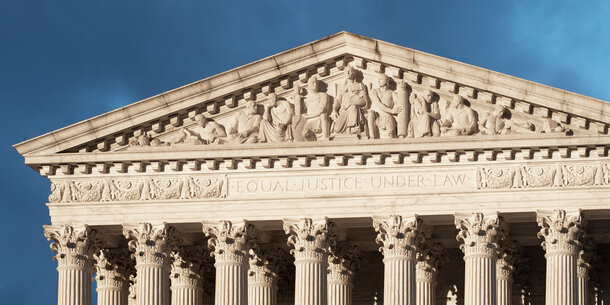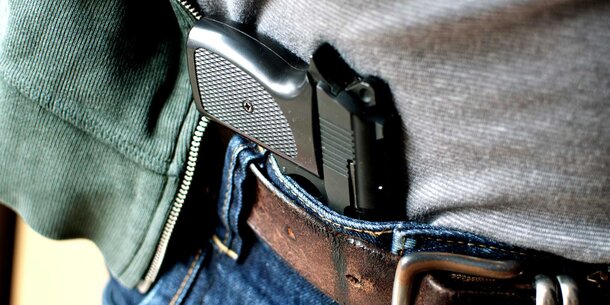Although the United States is no stranger to political violence, our elections in the 21st century have been safe and secure. Rare events of violence closely covered by the media drive public perceptions that political violence is imminent, but in reality, voter suppression by intimidation is much more likely to occur. And while guns have rarely been used in elections to commit violent acts, they are increasingly being wielded as tools of intimidation. Fortunately, many states already prohibit guns where elections are taking place, and this year, several more took action to prohibit them.
The spread of election-related conspiracy theories, especially by candidates and public officials, has resulted in an unprecedented barrage of threats against election administrators, prompting the Department of Justice in 2021 to create a task force to prosecute people who engage in such crimes. Thankfully, this surge of threats has so far resulted in few violent acts. But it has resulted in a mass exodus of career civil servants with irreplaceable experience. This vacuum creates the potential for good-faith mistakes in the election process that, ironically, can form the basis for more election denial conspiracies. Ultimately, election worker abuse can lead to voting process disruptions that result in real voter disenfranchisement. Voter intimidation, disproportionately aimed at voters of color, was present in the 2020 election and shows no signs of abating in 2024.
Increasingly, people engaged in the intimidation of election workers and voters are using guns to achieve their aims. In recent years, people have displayed guns to intimidate voters and people counting ballots. An armed mob appeared at the home of Michigan Secretary of State Jocelyn Benson while she was decorating for Christmas with her young son, accusing her of election fraud. Although these acts did not result in violence, they undoubtedly contributed to a climate of fear among election officials and voters.
In a nation where the number of privately held guns is ever increasing and the Supreme Court has drastically curtailed the ability to regulate them, it is critical to ensure that the polls, vote-counting centers, and other places where election officials work are off limits to gun carrying.
Laws that prohibit people from carrying guns in certain locations are effective. Even on January 6, 2021, the mob that stormed the Capitol seeking to overturn the results of the 2020 presidential election largely did not bring or use guns. It appears that the rioters followed the District of Columbia’s laws prohibiting people from carrying guns on Capitol grounds or openly carrying in general.
While weakening the ability to uphold effective gun violence prevention in many ways, the Supreme Court has been clear that the Second Amendment allows states to prohibit guns in places where elections are being conducted. Reflective of this, several states with strong gun cultures and high rates of gun ownership, such as Arizona, Florida, Georgia, Louisiana, and Texas, have long prohibited firearms where people vote.
As threats and intimidation directed at election officials have risen meteorically in recent years and the risk of voter intimidation remains high, more states have recognized the urgency of keeping guns away from elections.
In 2024, the Brennan Center and our partners helped enact laws in Colorado, Massachusetts, and Vermont that prohibit guns at the polls or where votes are being counted, as well as a law in New Mexico prohibiting open carry at the polls. Michigan is likely to enact a law at the end of this year that prohibits open carry at the polls and all guns where votes are being counted. These states join over a dozen others that specifically prohibit some or all gun carrying at the polls. Many more states prohibit guns at schools and other places that are frequently used as polling locations.
The Brennan Center also helped pioneer state legislation modeled on the federal Voting Rights Act that allows voters and election workers to sue people who intimidate or threaten them. Election officials like Benson, who are threatened outside of work because they administer elections, may also sue. Importantly, the measure recognizes for the first time that the presence of guns in the context of elections and voting is intimidating.
In February, California became the first state in the nation to have this bill introduced in its legislature. Titled the Protecting Elections from Armed Coercion and Extremism Act, or Peace Act, it is steadily advancing through the legislature and is on track to be in place for the 2024 election.
Violence at the polls remains unlikely, but threats and intimidation are all too real. To preserve the sanctity and safety of elections, it is critical that states continue to adopt solutions to this problem and address the emerging threat of guns as instruments of voter suppression.


